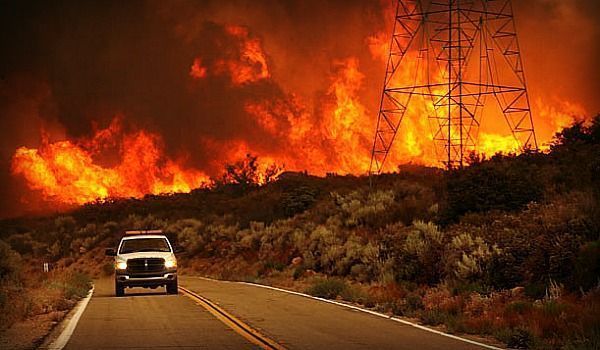
As new financial technologies emerge, there are always going to be winners and losers and controversies. Crowdfunding is now firmly entrenched in our lexicon and used to fund both businesses and personal endeavors. And of course, it has become a huge source of assistance for people in need, who may have suffered a significant recent loss. We've seen a lot of that of late here in the US with the devastating California fires and before that, Hurricanes Harvey, Irma & Maria.
So, good-natured souls set up crowdfunding campaigns for those who have suffered losses, and money pours into them. The controversy stems not from the generosity of friends and strangers who are there to help with their pocketbooks, but rather from whether or not that diverts funds from well-established aid organizations like the Red Cross. Yet TBD.
(Cindy Taylor/Publisher)
"Hundreds of people whose lives were uprooted by the Northern California wildfires are seeking financial help on sites such as GoFundMe.com, YouCaring.com, PlumFund.com, Facebook Fundraisers, Indiegogo’s Generosity.com and others. People across the Bay Area and country have donated millions of dollars, aided by the ease of giving with a click.
There’s no doubt that the money — and the psychological boost of feeling supported by a community — will help fire victims on the long path to rebuilding. But this type of feel-good donating has stirred controversy. Philanthropists worry that they siphon money from established nonprofits such as the Red Cross, whose services are available to all disaster victims. And the 5 percent fee charged by GoFundMe, the biggest site, is under attack. Although the sites are relatively new — GoFundMe started in 2010 — their use after disasters is now an indelible part of the recovery process.“Crowdfunding has proven to be a remarkably powerful, fast, effective way to rally a community struck by hardship to raise much-needed relief for victims,” said Dan Saper, CEO of San Francisco’s YouCaring, which began in 2011...
...“It’s become culturally normative; when there’s a tragic event, you create a site and people can donate,” said Richard Swart, a visiting fellow at UC Irvine who studies the social impact of alternative finance methods. “We already hang out in tribes online. This transfers that sense of belonging.”
Millennials are particularly keen on the sites, Swart said, because they “like extreme transparency; they want direct insight into how the money is applied.”But caveats apply.
“It feels almost weird in disaster situations when you have a variety of people competing,” said Ethan Mollick, an associate professor of management at Penn’s Wharton School of Business, who studies online crowdfunding. “When there is a charity as an intermediary, more people get help, and it’s based on who needs it. The Red Cross is accountable for what they do.”..."
Full Story at SFChronicle







